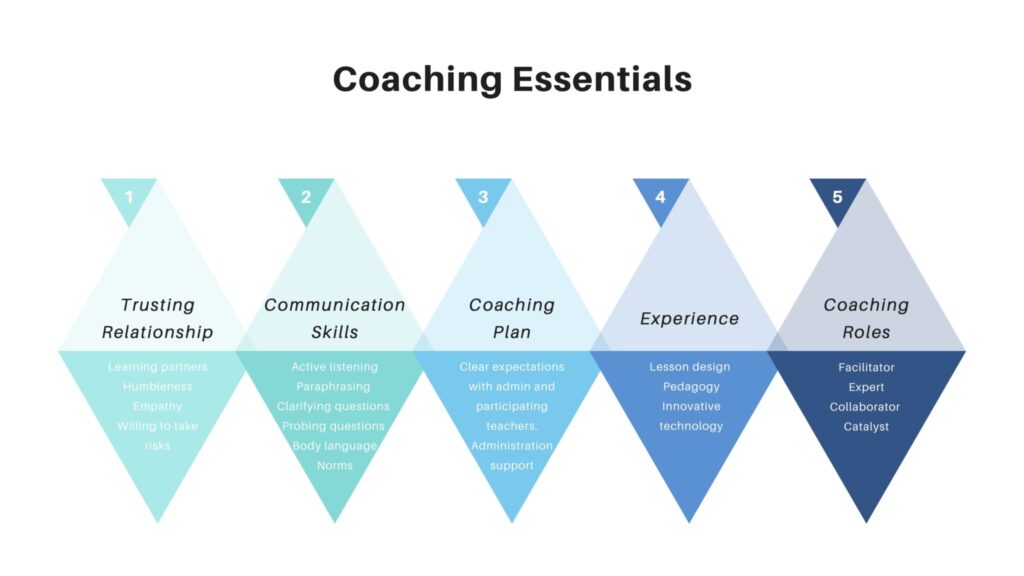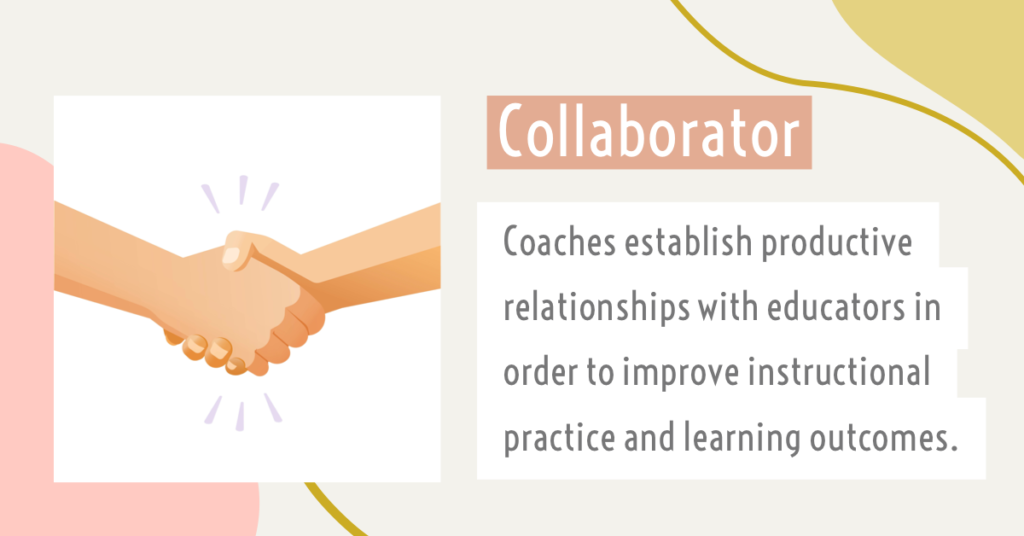3a

One of the most impactful parts of the DEL program was when we explored coaching relationships. While coaching roles and responsibilities vary from school to school, I learned some fundamental coaching practices and skills that can help establish trusting and respectful relationships. First off, I found it particularly helpful to define coaching roles. When I began coaching I usually assumed the role of the expert, researching new and innovative practices and being the “keeper of knowledge” when working one-on-one with staff. But I was missing other essential roles a coach needs to carry out in order to be effective. I learned that coaches need to be facilitators not only during PD, but also when guiding a single teacher through the coaching cycle by asking meaningful questions that help a teacher reason, reflect, and refine their instructional practices. Coaches also need to walk a fine line while collaborating with teachers. While coaches do need to come alongside teachers to help them plan, implement, and evaluate activities, they need to do so in a way that puts the teacher in charge and responsible for their own learning. This helps teachers build capacity instead of becoming reliant on coaches. Lastly, coaches need to be a catalyst for change and encourage teachers to try new things and then help them reflect on and improve their practice by asking questions. If coaching roles are of interest to you, please check out my blog post: The Roles and Responsibilities of Successful Coaching-Teacher Relationships.
It was also helpful to review and practice different communication skills that are needed in coaching. I had never set norms during a meeting and appreciated the opportunity to practice skills such as active listening, paraphrasing, and asking probing questions in a safe space. While I am confident in my people skills, it was clear that these communication skills must be taught and practiced when coaching for them to become more natural. For an overview of essential communication skills coaches need, check out my blog post Practical Communication Skills to Help Your Coaching Get Off The Ground. Through my studies, I became convinced that every school needs coaches. Coaching is a powerful practice schools can adopt in order to provide support for their staff and encourage continuous professional growth.

To read more about my work with this standard, you can use the drop-down menu above or the buttons below to navigate to a specific performance indicator.
Works Cited
ISTE Standards for Coaches (n.d.). Retrieved from: https://www.iste.org/standards/for-coaches
